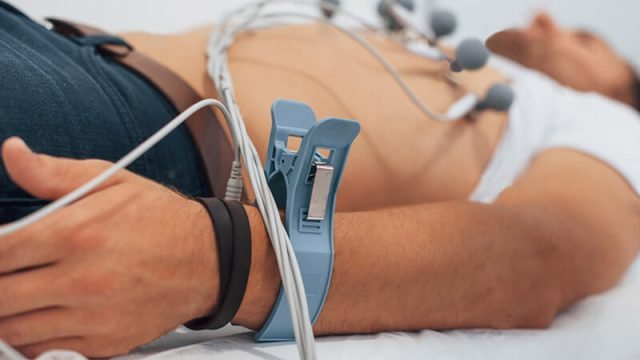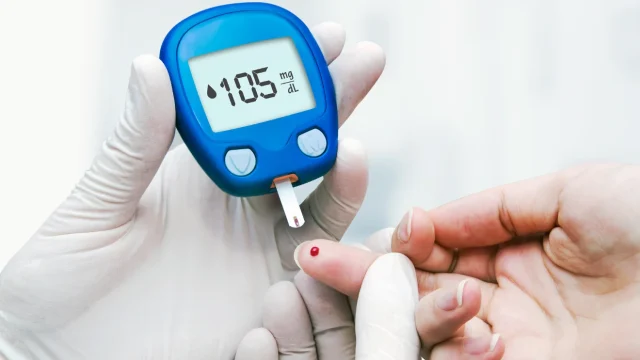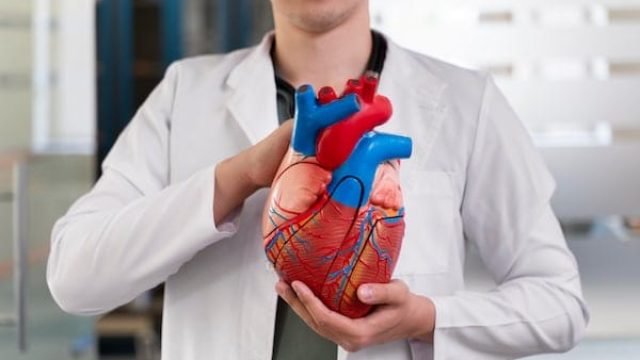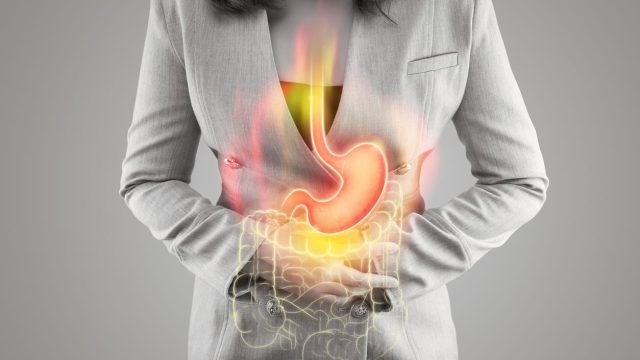Heart disease is a silent killer that takes an estimated millions of lives every year. What if there was a way to beat this? Bypass surgery, or coronary artery bypass grafting (CABG), is one of modern medicine’s best weapons against blocked arteries and heart attacks, a life-threatening condition. This is more than surgery; this is giving a second chance at life.
How does this amazing procedure restore blood flow to the heart? What are the requirements for it to be successful in thwarting potential heart attacks? More importantly, how can patients guarantee as smooth a recovery as possible and take good care of their hearts-to-be after such surgery?
In this blog, we are going to get to the bottom of bypass surgery, from how it works, to its staggering success rates, recovery plans, and topics to keep one’s heart dancing afterwards. If you or a loved one is contemplating undergoing this procedure, understanding its role may just be the key to a longer and healthier life.
Understanding Bypass Surgery
Nowadays heart disease is among the major depth-causing diseases in the world, and one of its grave complications is the blockage of vessels supplying blood to the heart. Angina or chest pain, shortness of breath, and heart attacks result when these obstructed vessels fail to do their function. CABG, or coronary artery bypass grafting, is one of the best surgical modalities for this condition. The heart’s blood supply is restored by bypassing those obstructed arteries, therefore providing an alternative route for oxygenated blood, thus relieving the symptoms of the disease.
What Causes Blockage of Arteries?
Atherosclerosis describes a slow process of cholesterol; fat, calcium, and other materials start building on the vascular wall and form plaques. These plaques slowly occlude blood flow to the heart and thus make it difficult for the organ to receive oxygen and nutrients.
Should a plaque rupture, it can cause the formation of a blood clot that goes on to completely block the artery? This sets off the heart attack and paves a deadly path. Hence, bypass surgery serves to prevent such classified complications under such events, for blood to reach the heart muscle safely and unobstructedly, to tackle these symptoms and improve heart function.
There are several causative factors for inducing and promoting atherosclerosis:
- High cholesterol level
- Hypertension
- Smoking
- Diabetes mellitus
- Obesity
- Lack of exercise
- Unhealthy food choices
- Genetics
- Signs of Bypass Surgery
When substantially narrowed or blocked, these arteries cause decreased blood flow to the heart muscle, and hence the following signs ray:
- Angina: Chest pain felt as pressure, tightness, or discomfort in the chest caused by decreased oxygen supply to heart muscles.
- Shortness of breath- This occurs when the heart fails to pump enough oxygenated blood to meet the demands of the body.
- Dizziness and fatigue due to poor circulation.
- Arrhythmias- Irregularities of heartbeats may occur due to the heart failing to keep a normal rhythm.
- Heart attack- In total blockage, a heart attack may be relieved when some damage occurs to the heart muscles due to the dip in oxygen supply.
Why Do You Need Bypass Surgery?
Your heart needs a steady flow of blood rich in oxygen to work. Due to a branch directly off the aorta, the coronary Artery network takes care of the oxygenation of the heart muscle. However, there may be instances when these arteries will either narrow down or completely occlude due to fatty deposits known as plaques. This phenomenon is observed in diseases known for obstructing arteries.
In case of the occlusion of these arteries, the heart muscle suffers that deprivation, therefore receiving an insufficient oxygen supply. This deprivation may lead, among other things, to chest pain or breathlessness or even an attack.” Therefore, any compromise in the blood supply to your heart would cause stress and eventually push it towards failure, if untreated, causing death.
If coronary artery bypass grafting (CABG) or bypass surgery is not among the treatments, those mentioned above-rehabilitation strategy, diet and lifestyle modifications, angioplasty, and stenting are other means to try and restore blood flow.
The Secrets Behind a Successful Bypass Surgery
Coronary artery bypass grafting (CABG), one of the major life-saving procedures, aims at restoring blood supply to the heart by bypassing obstructed arteries. The success of CABG broadly depends on certain factors, including preoperative preparation, surgeon’s skill, surgical techniques, and postoperative care. The paper will discuss exhaustively some key factors affecting the overall success of bypass surgery.
1. Preoperative preparation: Leveling the dice towards success
Refers to preoperative tests and evaluations carried out before bypass surgery to assess the condition of the heart and health of the patient. Proper preoperative preparation sets the stage for the safest and most efficacious approach to surgery.
Indispensable pre-surgical tests and evaluations
Angiography Of Coronary Arteries (Angiogram)
- This is an imaging test that shows the presence of any blockage in coronary arteries using contrast dye and X-rays.
- It informs the doctors about the site, number, and severity of occlusions.
Electrocardiogram (ECG or EKG)
- Records electrical activity of the heart to detect any abnormalities in beats or impairment due to past damage.
Echocardiogram (Echo Test)
- Uses ultrasound waves to assess heart structure and pumping effectiveness.
- The evaluation of functional status will be carried out before surgery.
Blood Tests
- Cholesterol levels, blood sugar, kidney function, and clotting ability.
- It assesses whether the patient in question is in stable condition toward surgery.
Stress Test (Treadmill Test or Dobutamine Stress Echo)
- This test assesses the performance of the heart under stress.
- It determines if surgery is needed and the ability of the heart to be functional elsewhere.
Chest X-ray
- Investigate the condition of the lungs and heart to detect any complications hindering surgery.
Pulmonary Function Test (PFT)
- Measures lung function, especially for patients with lung diseases like COPD or asthma.
- Preoperative Lifestyle Modifications.
Patients will be advised to make specific lifestyle modifications preoperatively that lead to better surgical outcomes:
- Quit smoking: It increases the risk of complications, infections, and wound healing.
- Control diabetes: Keeping blood sugar under control enables quick recovery.
- Control blood pressure & cholesterol: Probing medication helps to keep them controlled.
- Eat a healthy heart diet: Low-fat and high-fiber foods for heart health and circulation.
- Exercise and maintain a healthy weight: Light physical activity as advised by the doctor can keep the body in good shape before surgery.
2. Selection of Graft Vessels: Main Element for Long-Term Outcomes
The tedious choice of graft vessel for bypass surgery is found to be one of the most important aspects of bypass surgery, as the graft acts as the new road that brings oxygen-rich blood to bypass an obstructed artery. The surgery’s success or failure largely depends on the quality of the graft.
Types of Graft Vessels Used in Bypass Surgery
Internal mammary artery (IMA) – Long-Term Best Choice
- This artery is deep inside the chest wall. It is also very long-lasting and not prone to blockage.
- This is the bypass vessel used 90-95% of the time for the procedure because of its success rate over 10-15 years.
Saphenous Vein (Leg Vein) – Commonly Used
- A piece of the saphenous vein in the leg is taken out and placed into an anastomosis between the aorta and coronary artery distal to the site of obstruction.
- It is effective, but occlusion occurs more often in time over arteries.
Radial Artery (Arm Artery) – Alternative Choice
- Present in the forearm, the radial artery is quite robust with a good eventual result.
- It must, however, be observed closely because of its higher tendency to spasms.
Gastroepiploic Artery (Stomach Artery) – Less Common
- Seldom used when no other graft options are available. Harvested from the stomach lining, it is connected to the heart.
- The selection of the graft itself is important, as the durability of the graft will directly affect the success of the bypass surgery over time.
3. Improved Surgical Methodologies: Contributing to Precision and Security
As of now, bypass techniques evolved into the different kinds of operations that are used in bypass procedures today, which are less traumatic in nature compared to conventional surgery.
Types of Bypass Surgery
1. Conventional Coronary Artery Bypass Surgery (CABG)
- This open procedure utilizes a heart-lung machine to keep the blood circulation.
- During the surgery, the heart is arrested, and the graft is stitched onto the blocked artery.
2. Off-Pump Bypass Surgery (Beating Heart Surgery)
- Surgery is carried out without the machine and, therefore, with the advantage of lower risk of complications.
- Given to high-risk or elderly patients who cannot tolerate blood circulation through the heart-lung machine.
3. Minimally Invasive Coronary Artery Bypass (MICS-CABG)
- Instead, it uses smaller incisions rather than a full chest opening.
- This means less pain, short hospitalization, and fast recovery.
4. Robotic-Assisted Bypass Surgery
- Robotic arms controlled by the surgeon allow extreme precision.
- High-skill procedures with very little invasiveness are made possible.
It has benefits to the outcome of surgery; and these advanced techniques improve the outcomes of surgical operations by diminishing the risks and speeding the recovery time into a few days.
4. Post-operative care: long-term health for the heart
A successful surgery was not the end of the road in the operating theatre. There must be post-surgery measures to guarantee long-term benefits and prevent future heart ailments.
Immediate Recovery after Surgery
- A 1-2 day stay in ICU for monitoring.
- Breathing exercises and light movement were initiated to prevent complications.
- Gradual resumption of normal activities in 6-12 weeks.
Key Aspects of Long-Term Rehabilitation
Cardiac Rehabilitation Program:
- Supervised exercise and lifestyle counseling to strengthen the heart.
- Prevents the possibility of future heart problems.
Medication for a Healthy Heart:
- Blood thinners (Aspirin, Clopidogrel)- Prevent clotting of blood.
- Beta-blockers & ACE inhibitors: Control blood pressure and protect the heart.
- Statins: Lower cholesterol and prevent further blockage of arteries.
Healthy diet for heart care:
- Eat: fruits, vegetables, whole grains, low-fat proteins, and healthy fats.
- Avoid: Saturated fats, processed foods, sugary drinks, and too much salt.
Regular exercise &weight management:
- For instance, with walking, yoga, and aerobic classes, one can improve the efficiency of the heart.
- Keep a healthy weight to reduce strain on the heart.
Routine Follow-ups with Doctors:
- Routine monitoring of blood pressure, cholesterol, and heart function.
- Emergency medical help if any symptom re-emerges.
How Bypass Surgery Improves Heart Health
Surgical intervention in humans often underdone has bypass surgery or CABG-coronary artery bypass grafting: one type of life-saving surgery- restores blood flow to the heart when coronary arteries are occluded due to atheroma disease (i.e. plaque formation).. Bypass surgery is primarily performed whenever the blood needs to be rerouted around clogged arteries, but it is not limited to only that. It relieves the heart from filling function, improves the quality of one’s life, and prevents future cardiovascular complications, besides.
A fine description of how bypass surgery can enhance heart health and longevity contains the following:
1: Relief from Chest Pain (Angina) and Other Heart Symptoms
Most patients after bypass surgery experience immediate relief for chest pain (angina) and other symptoms caused by decreased blood flow to the heart. It is basically due to the fact that all these clinical signs have been strictly relieved by determination-based bypassing.
How It Helps
🔹 Enhanced Oxygen Supply. Bypass route Openly gives entry to all oxygen-rich blood into the cardiac muscles and improves reserve.
🔹 Less Deprived of Oxygen. Adequately supplied oxygen in the heart will decrease symptoms like chest pain, shortness of breath, and fatigue.
🔹 Better Physical Endurance: Patients previously limited by strong pain and shortness of breath while performing normal daily tasks will frequently find themselves dramatically improved in terms of capability to carry out most physical activities.
Real Life Manifestation
Climbing even one flight of stairs or walking a few yards before surgery would result in considerable discomfort for the patient. After surgery, most patients can go right back to their normal daily activities; in fact, many do so with a great deal of enthusiasm.
2: Enhance Heart Function and Oxygen Supply
The heart fails to pump poorly because insufficient oxygen reaches it through blocked arteries. This ensures that there is normal blood circulation, relieving strain on how the heart works.
How It Helps
🔹 Stringer Heart Muscles: The improved blood flow ensures that oxygen and nutrients get distributed to every possible part of the heart muscle so it won’t become further weakened.
🔹 Pumping Better: With lesser strain as a consequence, the heart can tend to keep a normal rhythm, working at an optimum. This reduces the chance of heart failure.
🔹 Prevent Scar Tissue Formation: Some portions of the heart become permanently damaged by prolonged oxygen deprivation. Bypass surgery prevents such damage.
Real-Life Impact
For most patients, they now feel healthier, healthier, and stronger all over, according to most reports. For instance, things impossible to do before, such as walking a great distance, carrying in groceries, or even working out, have become much more manageable.
3. Reducing the Probability of Future Heart Attacks and Cardiovascular Issues
The bypass surgery will not only relieve current blockages but also reduce future heart problems.
How Does It Work
🔹 Stops Attacks: Bypass surgery very well eliminates the chances of a heart attack from sudden blockage.
🔹 Reduced Strains due to Blood Pressure on the Heart: The improved circulation reduces the heart’s strain since it does not have to struggle to pump blood and makes blood pressure easier to control.
🔹 Reduced Chance of Arrhythmias: Many patients suffering from severe coronary artery diseases complain of irregular heartbeats or arrhythmias, resulting from poor blood supply, bypass surgery restores a steady heartbeat.
Real-Life Impact:
🔹 Formerly, those people were always trembling, ready for a sudden attack and when needed to rush to the hospital. For them, surgery paved the way to peace of mind.
🔹 Bypass operations are up to 50% more effective than medication-only treatment in reducing the number of deaths caused by heart disease.
4. Improving Longevity and Quality of Life
Bypass surgery has the potential to prolong life for the most advanced coronary artery disease patients, those who also have diabetes, a number of blockages, and those who receive this intervention.
Mechanism of Action
🔹 Life Expectancy Benefits: First, because bypass surgery is shown to have a longer life expectancy benefit when performed during an earlier disease process, patients obviously will be spending even healthier years in life than medication-only therapy patients.
🔹 Improvements in Mental-Emotional Well-Being: Heart disease patients often go through stress, anxiety, and depression related to their limitations of lifestyle, but once they go through bypass surgery, these patients regain confidence and start living a fuller, active life.
🔹 Slowing the Progression of Heart Disease: Any lifestyle changes such as quitting smoking, healthy eating, and exercising that are introduced after surgery can help prevent blockages from forming and keep the heart functioning well.
Real-Life Impact
- In most cases, patients who felt curtailed because of their heart condition now feel rejuvenated and have experience living life again.
- Most people do just that after a successful bypass operation: go back to work, travel, and partake in recreational activities they could not enjoy before.
Additional Bypass operation Benefits
- Given that many patients were dependent only on painkillers, beta-blockers, and various heart medications, most would do away with these drugs after surgery.
- Better Renal Functioning: In some cases, the blood supply to the kidneys has changed through bypass surgery and may prevent the complications in kidney-related diseases.
- Better Functions of the Brain: A healthier heart means blood is supplied properly to the brain ending at a lower risk of stroke memory failure and cognitive decline.
Recovery and Lifestyle Changes After Bypass Surgery
Recovery from bypass surgery typically takes a few weeks to several months depending on an individual’s health conditions.
Following surgery, the changes spiral heart healthy in lifestyle:
Eating Healthy: Nourishing The Heart
- Heart-protecting measures require heart-healthy diets postbypass.
- Foods that nourish the heart include fresh fruits and vegetables, whole grains, and lean proteins that prevent more plaque deposition in the arteries.
- Principally good fats from nuts, seeds, or olive oil can elevate the levels of good cholesterol, while fiber in the diet enhances digestion and obstructs elevated blood sugar levels.
- Bypassing junk foods, high in salt, and bad fats will lessen the chances of heart disease progression.
- Healthy eating not only aids recovery but also energizes supports immunity, and protects heart health in the long run.
Regular Exercise: Strengthens The Heart
- The function of regular exercise is to enhance heart function, circulation, and general well-being.
- Light exercise such as walking, biking, or swimming keeps the heart muscle strong, alongside good control over blood pressure and maintenance of body weight. It also diminishes stress, increases stamina, and reduces the chances of further cardiac problems.
- However, the individual is supposed to consult their doctor regarding any exercise prescription plan first to prevent unnecessary strain.
- Thus, remaining active, from a consideration of enhanced blood circulation towards the heart, becomes an encounter to assist with daily activities and a step to fulfilling the commencement of a healthy, active life.
Stop Smoking and Manage Your Stress: Heart Protection
- A prime act of sabotage against the heart is tobacco use, injury
- Detrimental to blood vessels, it raises blood pressure levels and hinders the blood’s ability to clot.
- As the smoker quits the act, they greatly diminish these threats to the heart and improve the function of their lungs.
- Stress management also bears importance; in excessive amounts, it can have detrimental effects on the heart by raising blood pressure.
- Therefore, relieving stress through meditation, deep breathing techniques or yoga are good practice.
- Maintaining a hobby, social contacts, and an adequate amount of sleep improves emotional health, which takes positive strides for the heart in the long run.
Routine Medical Check-Up: For Early Detection
- A routine medical check-up properly monitors heart function and can pick up any complications that arise in the early stage.
- The application of routine tests such as measuring blood pressure, checking cholesterol levels, and assessing heart function gives the doctor a fair idea of the cardiovascular status of the patient. The doctor can make any alterations needed to the medication, suggest changes in lifestyle, and address any concerns during that follow-up visit.
- If a medical complication does come up, then with early intervention, treatment will be initiated before things get out of hand with severe complications such as heart attacks or strokes.
- Regular health check-ups assure that bypass surgery will continue to achieve its aims and long-term heart health.
Overview
Coronary artery bypass grafting (CABG), or “bypass surgery” as it is informally called, has always been a life-saving surgery that has afforded many individuals fresh life through its eventful past. It aids in better functioning of the heart because oxygen-rich blood is now brought to it by a newly minted pathway, with symptom relief from chest pain and breathlessness and a lowered tendency for catastrophic cardiovascular events, such as heart attacks.
But success in bypass surgery cannot ever be measured only by the operating theater visit. The recovery process and heart well-being post-surgery hugely depend on the commitment of the patient towards living a healthy lifestyle; that is, heart-friendly habits, such as eating a healthy diet combined with exercise, not smoking, managing stress, and then actually taking all medication with timely follow-up to gain the full potential from surgery.
If you or someone you know has severe coronary artery disease, coupled with recurrent chest pain, fatigue, and breathlessness, you need to see a specialist cardiologist. The succeeding step will be that the cardiologist will apply a bypass surgery only after assessing whether or not you are eligible to perform the operation.
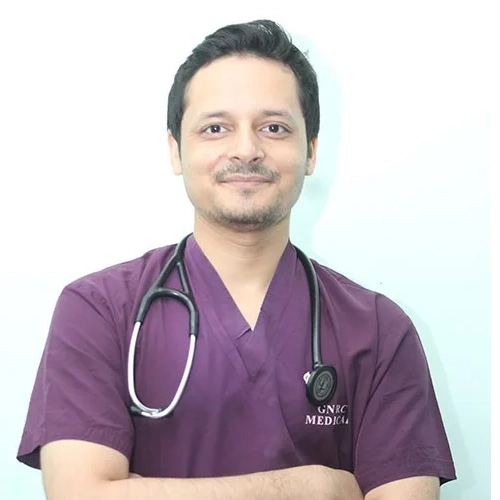
Dr. Chandra Prakash Thakur

Dr. Nirmal K Bhattacharjee
The Apollo Clinic, Ulubari, Guwahati, is a prime healthcare institution for heart care and surgical excellence; it specializes in expert consultations and advanced cardiac care.
Book an appointment today by calling +91-9085612000 and start your journey toward a healthier heart and prosperous life.





